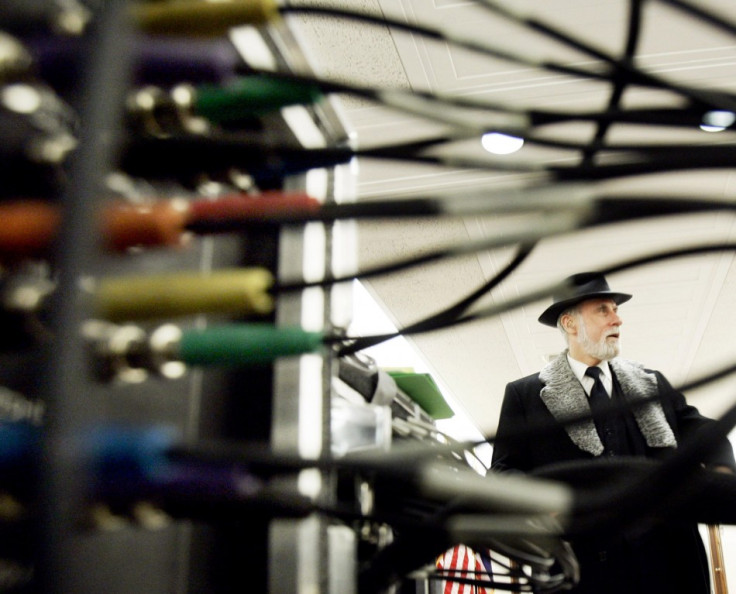Who Rules the Internet? Battle Lines Drawn at WCIT
Google, governments and the International Telecoms Union will go head-to-head at the World Conference on International Telecommunications (WCIT) in Dubai as new rules regarding the regulation of the internet are debated.

The last time the rules of the internet were drawn up, only a few people had even heard of the concept. That was 1988. Today, the global phenomenon that is the internet is used by almost 2.5 billion people around the world.
It is clear, therefore, that a new set of rules and regulations is overdue, but getting consensus on what those rules should be, is not so straight-forward..
WCIT, run by the International Telecommunications Union (ITU), which is being held in the Dubai World Trade Centre over the next two weeks, will see over 1,950 delegates from 193 countries debate various issues facing the internet today. These include topics such as improving internet access for the elderly and disabled, dealing with the growing cyber-security threat, providing rural broadband access, and most important of all: Who will regulate the internet?
Currently there is no international governing body for the internet, with a mixture of private companies and non-profit groups ruling who can do what on the internet.
Ahead of the 12-day conference clear battle lines have been drawn. On one side is the US, European Union and a plethora of private technology companies led by Google, who want to see the internet remain open and free.
On the other side is a growing number of developing countries who are looking to enshrine a regulatory body with broad powers under the auspicious of the United Nations.
Many of the 193 ITU member nations believe some form of UN-run agency is needed to counteract the recent growth in cybercrime, and more recently military attacks.
Proposals
Some of the proposals being made at WCIT this week are confidential due to their contentious nature. However, a leaked proposal from Russia shows that it wants to give individual countries broad permission to shape the content and structure of the internet within their boarders.
Additionaly, a group of Arab countries is thought to be seeking to have a universal online identification system implemented, meaning online anonymity would become a thing of the past.
The problem is that dozens of countries including China and Russia already heavily censor what websites and information their citizens can access online. These countries will therefore be seeking the statutory underpinning which would come with a UN-sanctioned agency.
We also saw last week how one government can cut access to the internet completely when Syria's government caused a 48hr blackout in the country.
Ahead of WCIT, Google launched its Take Action campaign which wants people around the world to stand up for freedom and "pledge to support a free and open internet."
Google Executive Chairman Eric Schmidt said this month the internet is already on the road to Balkanization, with people in different countries getting very different experiences from the services provided by Google, Skype and others.
Evangelist
Google's chief internet evangelist, and one of the fathers of the web, Vint Cerf, has been vociferous in his disdain of those seeking to regulate the internet:
"These persistent attempts are just evidence that this breed of dinosaurs, with their pea-sized brains, hasn't figured out that they are dead yet, because the signal hasn't travelled up their long necks," Cerf told Reuters.
The normally reserved Cerf, who is co-author of the basic protocol for internet data, is not alone in the US in believing that decisions made at WCIT could have huge consequences for people's freedom online.
The New York Times said the possible new rules could put "government handcuffs on the Net" while the New York Post went even further, saying that if the proposed new body is sanctioned "the man in charge of the Web will be a Soviet-trained apparatchik from Cold War days."
No drastic changes
However, not everyone believes the outcome of debates at WCIT will be that significant. The ITU's top official, Secretary-General Hamadoun Touré, sought to downplay the concerns, stressing that even though updates to the treaty could be approved by a simple majority, in practice nothing will be adopted without near-unanimity.
Touré said that because the disagreements are so vast, the conference probably will end up with something resembling the ITU's earlier formula for trying to protect children online - an agreement to cooperate more and share laws and best practices, perhaps with hotlines to head off misunderstandings.
"From Dubai, what I personally expect is to see some kind of principles saying cyberspace is a global phenomenon and it can only have global responses," Touré said. "I just intend to put down some key principles there that will lay the seeds for something in the future."
Adding his voice to the need for some calm and reason surrounding WCIT outcomes was the US delegation chief Terry Kramer:
"The decisions are going to be by consensus." He said anti-anonymity measures such as mandatory internet address tracing won't be adopted because of opposition by the United States and others.
"We're a strong voice, given a lot of the heritage," Kramer said, referring to the United States' role in the development of the Internet. "A lot of European markets are very similar, and a lot of Asian counties are supportive, except China."
© Copyright IBTimes 2025. All rights reserved.






















